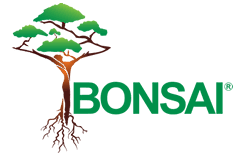What are the four attributes that can help make you a bolder leader?
- Visionary
- Communication/relationship-building skills
- Openness to input
- Willingness to learn
To dig more into this (see my article in Young Upstarts for more details on these 4 attributes), I recently interviewed Valerie Zumwalt. She’s not only the founder of ShowMe Leaders and Executive Director of The John Maxwell Team, but she’s also someone who’s willing to march boldly into new territory.
Below are some of her insights into bold leadership based on these four attributes.
1. How have you increased your foresight?
I’ve learned to do this type of thinking using “what if…?” prompts. And I only allow myself to answer the question in a positive way. So not “what if everything goes wrong?” but “what if X could get better?” What if we tried something new? What if we didn’t do it the way we’ve always done it — or the way everyone else does it?
I’ve made this a learned habit because it’s easy for me to fall into criticism or get stuck in details about “how” we can accomplish big goals. But being intentional about possibility thinking is what’s brought me new, different ideas — and given me inspiration to reach for more than I would have otherwise.
2. How have you developed your relationship-building skills?
As someone who’s strong in the Analytical theme, I have to be intentional in this area. I literally put relationship things on my task list so that they get done. At first, it seemed pretty strange to treat people as tasks, but I quickly realized that the effects of the reminders to nurture important relationships far outweighed the task.
3. How do you get input to improve your decision-making?
Personal growth comes from the books you read, the people you meet, and the events you attend. And I know that if I’m not growing personally, my business is certainly not growing.
For example, I run a one-day leadership conference and strongly believe that most attendees overemphasize the event and underestimate the process of actually growing from it. So I used to insist on having breakout sessions after the main event to help people formulate takeaways. The only problem? No one stayed for them.
For three years, I tried different breakouts or activities, and less than a third of the 800-plus attendees took advantage of them. So instead of forcing my ideas on people, I listened to my audience and stopped doing the breakout sessions on the day of the event. Now, I do post-event recaps and give groups the opportunity to debrief together. This accomplishes similar goals — but in a format that better suits my audience.
One of the best lessons I’ve learned about feedback was from you, Loriana. When you were reviewing my post-event survey, you asked: “What are you going to do with the answers to that question?” That is a great filter I still apply when seeking feedback.
4. What’s your perspective on learning?
I’ve come to accept that mistakes are how we learn. In fact, one of my favorite books from John Maxwell is “Sometimes You Win — Sometimes You Learn.” As long as I fail forward, I’ve learned that failure is success’s constant companion. This point also highlights the importance of mentorship and coaching. We can learn from others’ mistakes and wisdom if we’re willing to invest in ourselves enough to surround ourselves with mentors and coaches.
Having you walk me through leaving my day job and starting the business was invaluable in building my confidence and resilience. And connecting to the local entrepreneurial community not only gave me access to mentors, but also helped me feel like I wasn’t alone. Investing in mentorship and coaching — being sure I continue to grow — is what keeps me reaching for more and believing that I can do more in my life.
Want to gain further insight into becoming a bold leader? Subscribe to BONSAI’s quarterly newsletter to access leadership tips and expert insights that will transform your leadership abilities.





 Britta burrus design.
Britta burrus design.